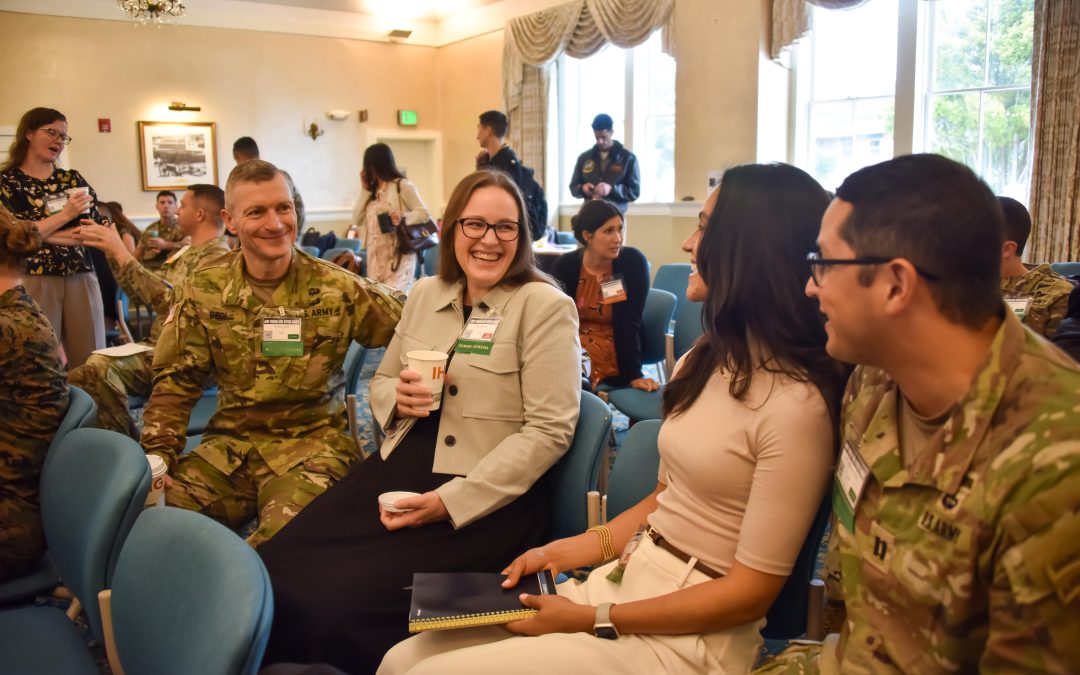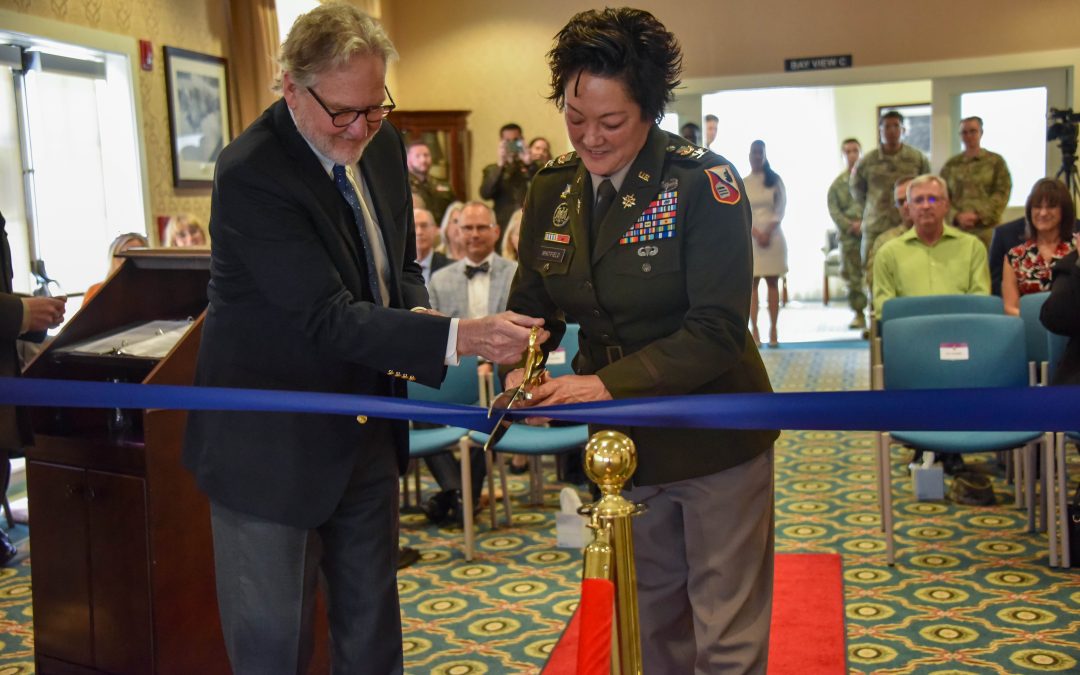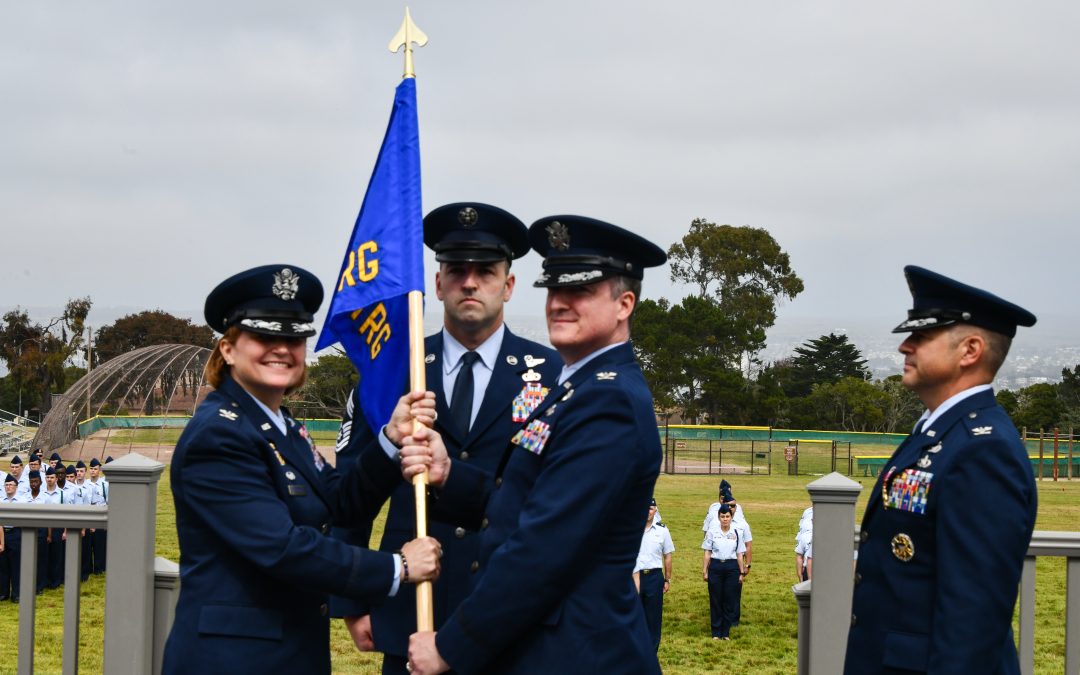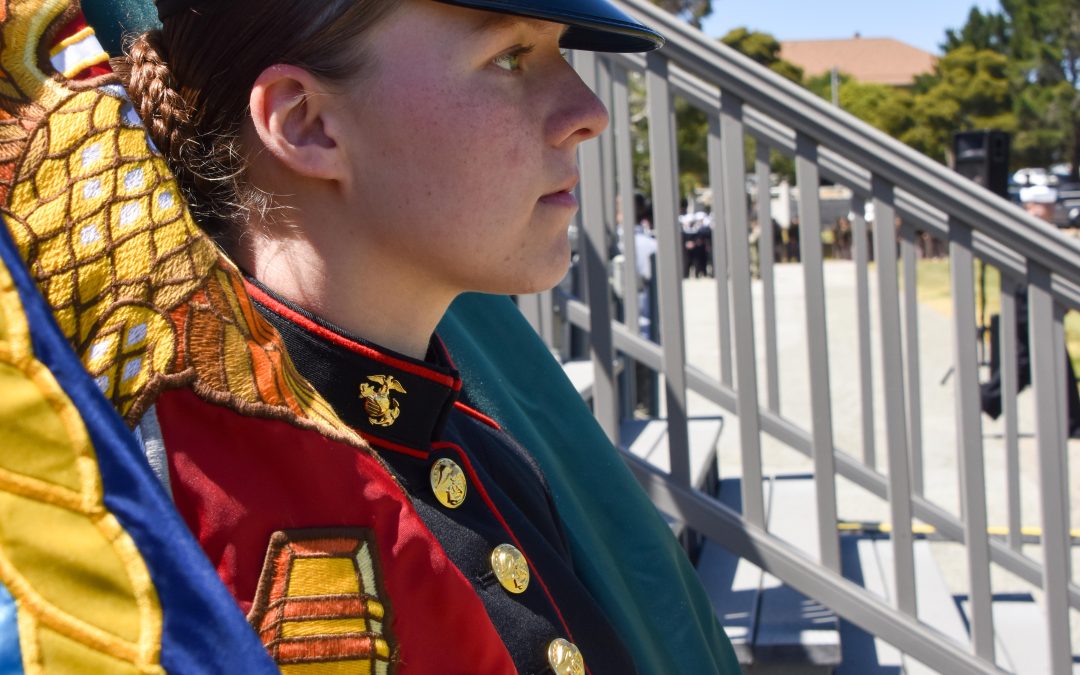By Natela Cutter
DLIFLC Public Affairs
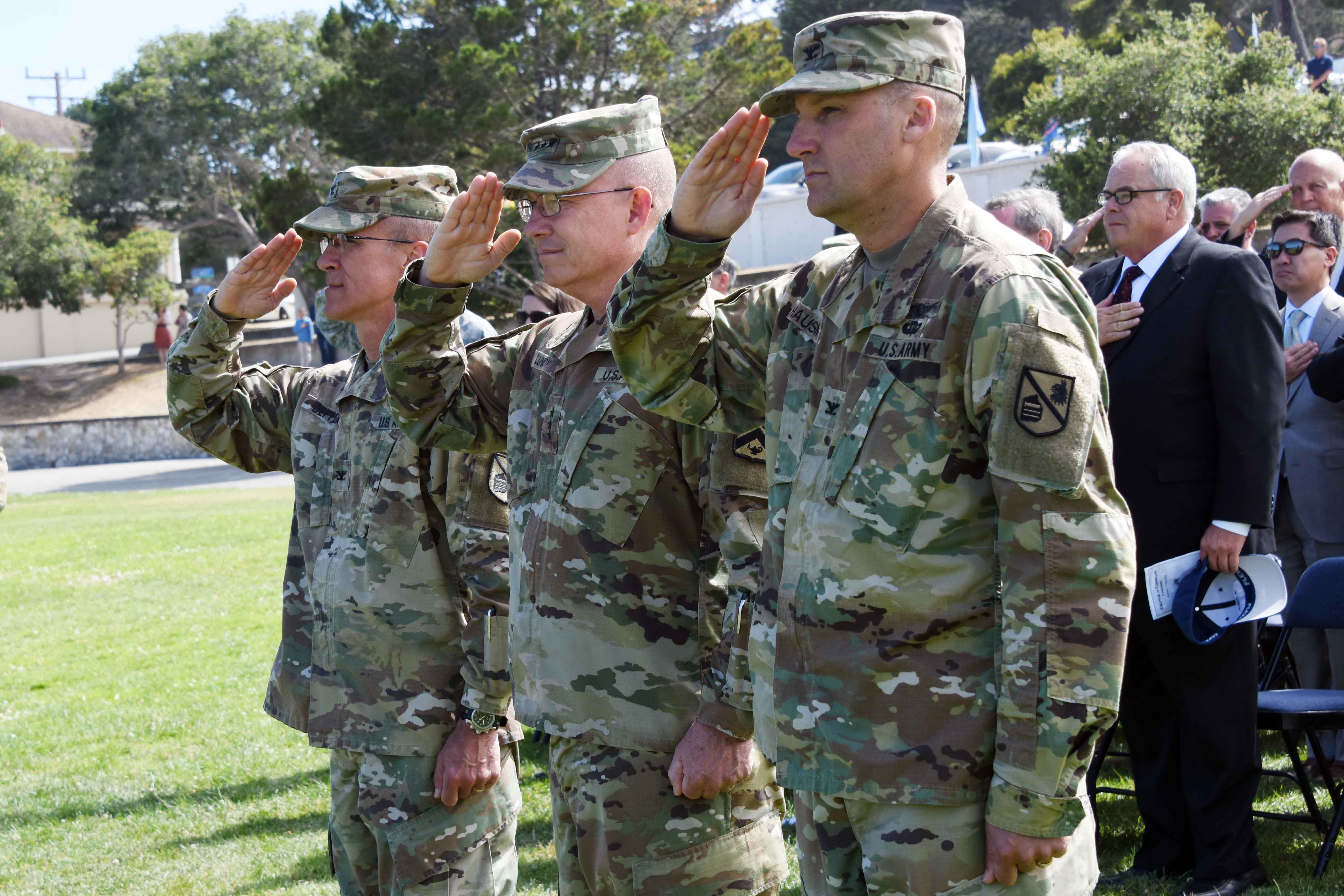
DLIFLC incoming commandant Col. Gary M. Hausman (right), presiding officer Lt. Gen. Michael D. Lundy, and outgoing commandant, Col. Phillip J. Deppert, salute the troops on Soldier Field June 1, during the change of command ceremony. (Photo by Natela Cutter, DLIFLC Public Affairs)
MONTEREY, Calif. – After serving successfully for nearly three years, Col. Phillip J. Deppert relinquished command of the Defense Language Institute Foreign Language Center, Presidio of Monterey, California, to Col. Gary M. Hausman June 12.
The change of command ceremony was presided over by Lt. Gen. Michael D. Lundy, commanding general of the U.S. Army Combined Arms Center, Fort Leavenworth, Kansas.
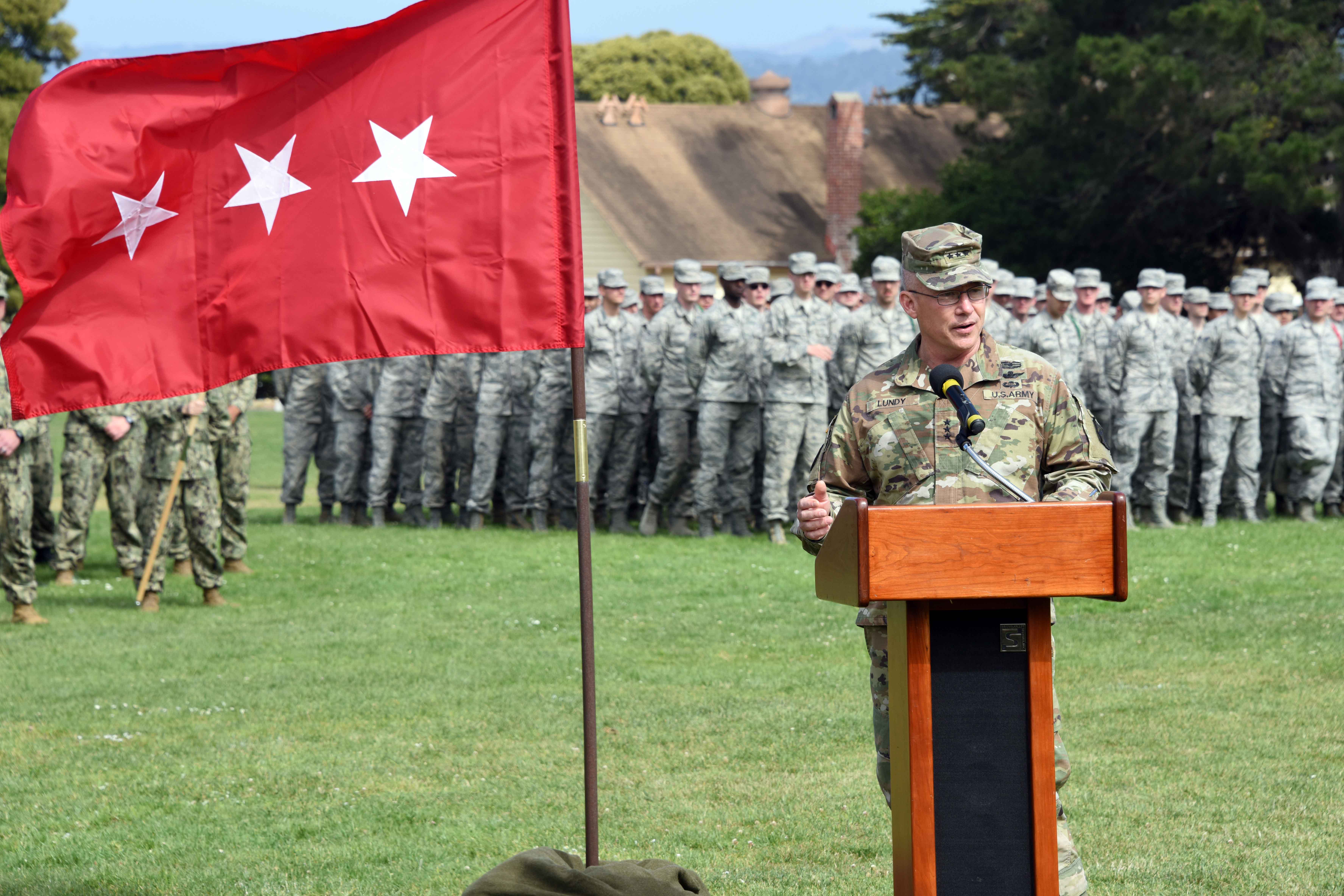
Lt. Gen. Michael D. Lundy addresses the audience at the DLIFLC change of command from Col. Phillip J. Deppert to Col. Gary M. Hausman June 12. (Photo by Natela Cutter, DLIFLC Public Affairs)
“This is the toughest colonel command in CAC (Combined Arms Center) but possibly one of the most rewarding,” said Lundy in his remarks. “Phil, you have done a great job…Gary, you will no doubt continue the great work the Depperts have done.”
“This has been the most fulfilling three years of my career, and I know you will have the same experience,” said Deppert to the new commandant and his family.
In his farewell remarks, Deppert recognized what he called the “Team of Teams,” referring to faculty, Non-Commissioned Officer Military Language Instructors and service unit leaders of all four branches, thanking them for their hard work and dedication to the institute. “The institute continues to thrive because of your unwavering support and open arms,” he said.
Deppert has been credited for conquered big challenges such as implementing higher faculty pay compensation which gave instructors an approximate 20 percent pay raise and benefits augmentation, amounting to a $31.8M increase in annual salaries. He also reinvigorated Shared Governance at the institute by directing a review of the mission to improve communication between the representative groups and leadership.
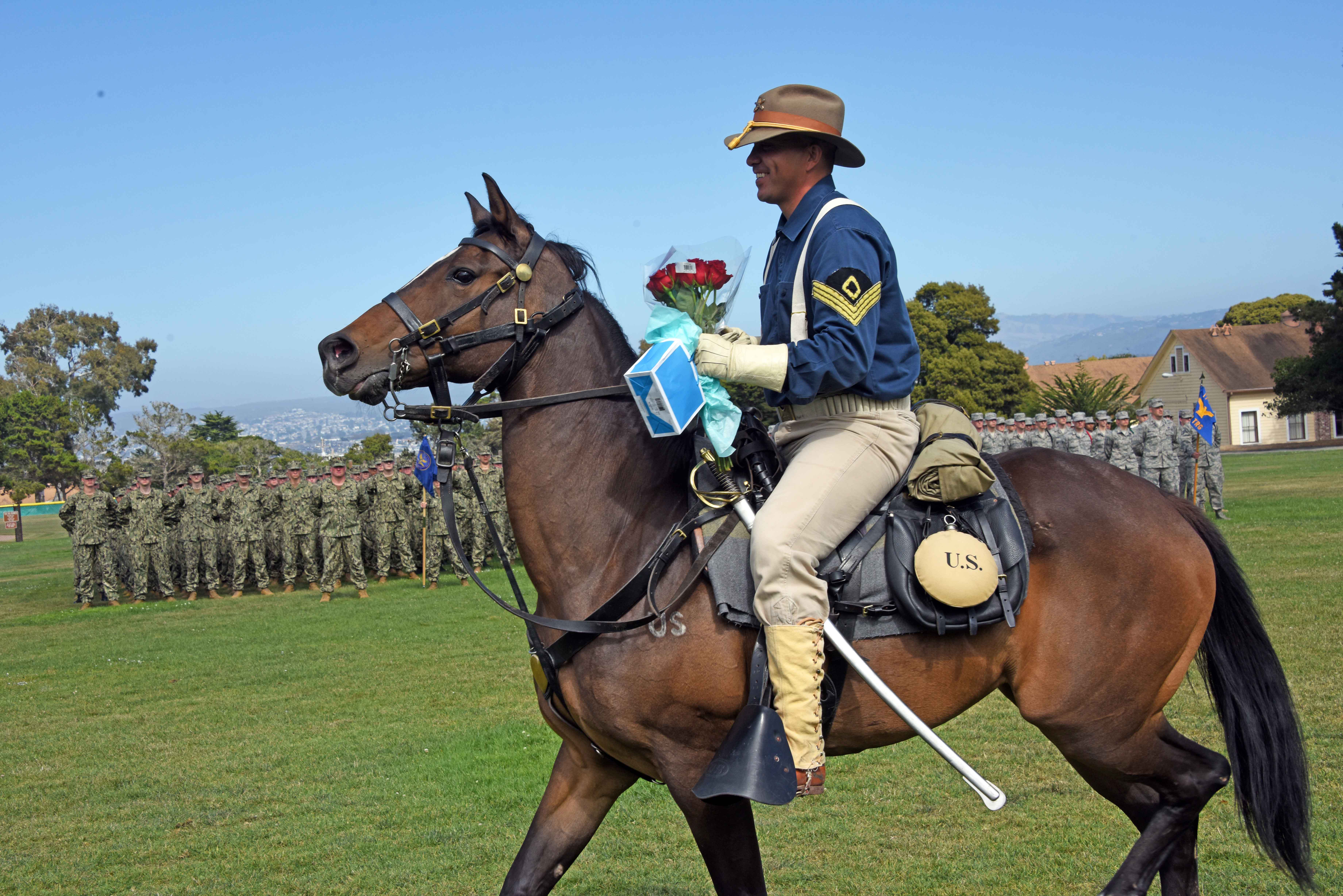
Paying homage to the history of the Presidio of Monterey, the 11th Armored Cavalry Regimental Horse Detachment participated in the change of command, delivering flowers to the spouses of the commanders. The regiment has historic ties to the Presidio during the pre-World War II years when the Presidio was a cavalry post. (Photo by Natela Cutter, DLIFLC Public Affairs)
During his tenure, significant strides had been made in achieving higher student proficiency levels and Deppert instituted a Center for Leader Development that would offer instructors an opportunity to gain leadership skills and sharpen their academic expertise in order to advance the next generations of linguists to desired proficiency levels.
“Michelle and I look forward to serving you,” said Hausman, referring to his spouse. Hausman has come to Monterey with his family after serving as the executive officer to the commanding general of U.S. Army Cyber Command and then the deputy chief of staff, also at Cyber Command.
Participating in the ceremony was the 11th Armored Cavalry Regiment Horse Detachment from Fort Irwin, California, that carries a special history linked with the Presidio of Monterey. From 1919 to 1940, the 11th Cavalry was the host unit at the Presidio, hosting numerous horse shows and parades for the local community.
DLIFLC is regarded as one of the finest schools for foreign language instruction in the world. The institute provides resident instruction in 17 languages to approximately 2,500 military service members, five days a week, seven hours per day, with two to three hours of homework each night. Generally, students spend between 36 and 64 weeks at the Presidio, depending on the difficulty of the language.

